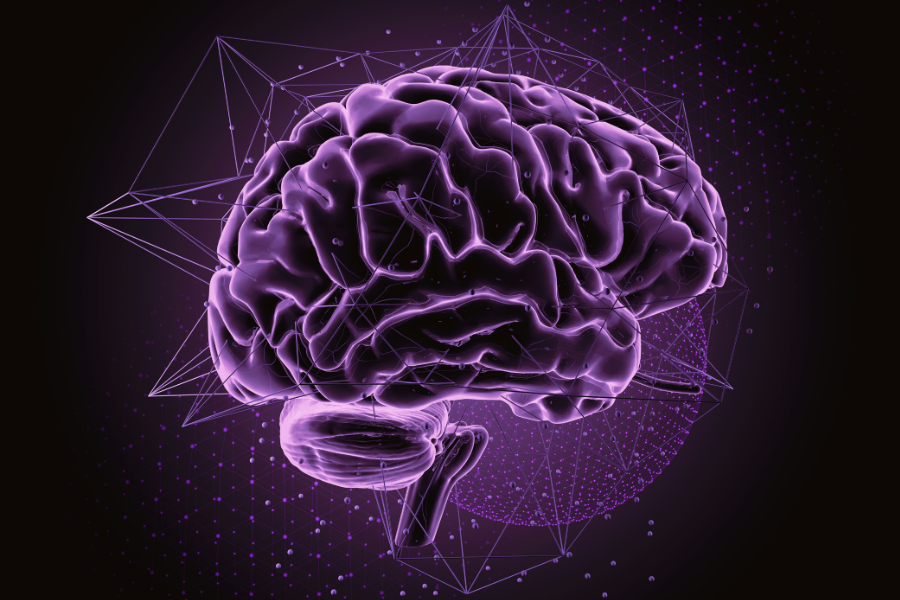Puzzles are a fun activity for anyone to enjoy, but stroke patients are a group that can especially benefit from doing jigsaw puzzles during recovery.
A stroke is caused by blocked blood flow to the brain or sudden bleeding in the brain. Around 795,000 people suffer from strokes each year in the United States, and while they can be deadly, many survive and must then enter the process of rehabilitation and recovery, often a daunting task as they work to regain bodily functions.
After a stroke, a person may be paralyzed or have weakness, generally on one side of the body. They may have trouble speaking, along with issues with swallowing, pain, or numbness. Strokes can also cause cognitive problems, issues with awareness, attention, learning, judgment, and memory.
With those symptoms in mind, it makes sense that jigsaw puzzles may help to aid in a stroke victim’s recovery. Today, we’re taking a closer look at how stroke patients can benefit from this tried-and-true activity.
Key Takeaways
- Stroke patients may benefit from jigsaw puzzles.
- Jigsaw puzzles can specifically help with a number of cognitive functions, which strokes often affect and stroke patients must work to regain during recovery.
- In addition to the many physical, cognitive, and neurological benefits, puzzles are also a great way to ease stress and regulate mood for stroke patients.
How Do Puzzles Benefit Stroke Patients?
Puzzles as a whole (think crosswords, sudoku, word searches) are a great resource for stroke victims, and jigsaw puzzles, too, are indeed a great activity to aid in stroke recovery. The benefits stroke patients reap are the same benefits that any of us do when solving a jigsaw puzzle.
Enhancing Memory Retention
Strokes reduce blood flow to the brain, which can impact memory retention. Jigsaw puzzles are generally good for recall memory and can help stroke patients to remember details for extended periods of time. They can also help with mental reasoning and to increase cognitive processing. It’s a more engaging and fun activity to help boost memory, compared to many other memory-related exercises that may become mundane over time.
Aiding Cognitive Thinking
Strokes can also decrease cognitive thinking, and we already know jigsaw puzzles aid in cognition for humans in general. We must use both brain hemispheres to complete a jigsaw puzzle, which is especially handy for stroke victims in that they are required to use parts of their brain that a stroke may have affected. Jigsaw puzzles help to enhance cognitive thinking, problem solving, and critical thinking in all of us — but this is especially useful for those recovering from a stroke.
Improving Fine Motor Skills
Another side effect of strokes is a decrease in fine motor skills, so jigsaw puzzles are a great one-handed activity for stroke patients to participate in. Research has shown that jigsaw puzzles are an inexpensive tool to help improve fine motor skills, especially for stroke victims. It gives folks recovering from strokes an opportunity to practice these skills, like improving grip.
Regaining Hand-Eye Coordination
For stroke patients who are working on regaining hand-eye coordination, puzzles can be a great help. Hospitals and rehabilitation centers already use jigsaw puzzles to help stroke patients to recover this ability, as the process of fitting pieces together and placing them where they belong in relation to a bigger picture helps to refocus that relationship between the eyes and hands.
Regulating Mood
Once again, puzzles are a great tool for any person to enhance their mood and increase the production of dopamine. Jigsaw puzzles make us feel happy, satisfied, and motivated. For stroke patients, who may be experiencing depression or negative mood-related symptoms during recovery, puzzles can provide a sense of calm and help to better regulate the mood.
Easing Stress
Going through a stroke and the subsequent recovery process can be a lot to take on for many stroke patients, especially given the number of therapies many stroke patients undergo. Alongside all the neurological, physical, and cognitive benefits, jigsaw puzzles are simply a fun, low-stress activity to engage stroke patients while also helping them to regain key functions.
Final Thoughts
Stroke patients can benefit from jigsaw puzzles in the same way we all do. It’s an engaging, low-stress activity that engages our brains and helps us to increase our cognitive skills, like memory, problem solving, and critical thinking. For stroke patients, these are all incredible benefits that can help to aid in recovery, along with helping to regain fine motor skills and better hand-eye coordination.
It’s also important to keep stroke patients engaged, and puzzles are great to help ease the stress of recovery and regulate mood. If you or a loved one have suffered from a stroke, a jigsaw puzzle is a perfect activity to consider!



